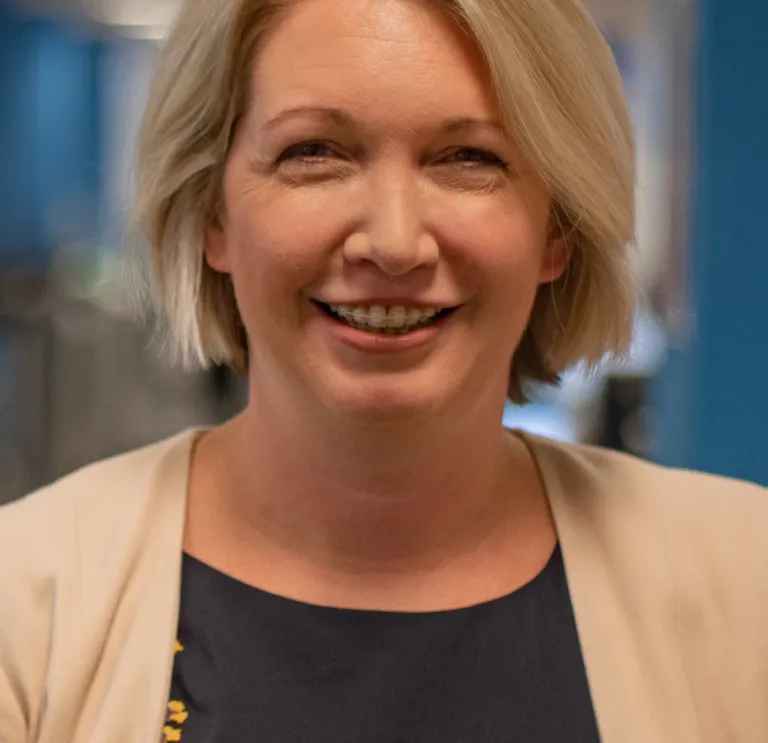How did you get into the industry?
A route many would think of as unconventional; after reading history at university, I then trained as a Chartered Accountant with a plan to work in the third sector. However, I entered the tech industry after doing a blind interview for Fujitsu and segued into Fintech when I joined the FTSE 100 insurer Admiral Group.
Can you describe a key decision or ‘fork in the road’ that had a big impact on your career?
Deciding to take on the role of CEO at Confused.com eight weeks after giving birth to my daughter. It was a tough decision as it goes against the status quo and some people were concerned about how I’d be able to focus on overhauling a company while taking care of a new-born. But it was the best decision I’ve made. If you’re determined and surrounded by a strong team, you will achieve what you set out to do. And the results speak for themselves!
What do you love about working in Fintech?
The endless possibilities around building and developing new innovations with the purpose behind them to make people’s lives easier. We’re building solutions to consumer problems. In addition, I recognise the responsibility I have because my role has given me a platform which I can use to encourage more women into our field.
How did you become aware of the opportunities within the sector in Wales?
We’re lucky that in Wales we have a vibrant Fintech community, which is well connected and established. Lots of national Fintech companies have decided to put down roots here and there’s a strong Fintech community with organisations like FinTech Wales, Tech Nation and the Fintech Awards Wales.
Who were your role models as you progressed in the industry?
The founder of Confused.com is a lady called Kate Armstrong; her vision and determination have changed how people around the world shop for their insurances. That is a pretty remarkable achievement, and she is definitely someone I look up to. I try to take learnings from everyone I meet – whether it’s something I can take on board to improve myself, or if it’s something I take note to avoid doing! But having a ‘growth mindset’ and being open to new opportunities is critical for self-development.
What would you tell your 18-year-old self?
Be willing to step out of your comfort zone in order to grow. That means actively learning about things that ‘scare’ you and exploring sectors that you might not consider. And having the confidence to ask for what you want, even if others before you haven’t.
What are the biggest challenges that you’ve seen off so far? As an industry, what’s been learned from such challenges?
One of the biggest challenges is that technology often moves at a faster pace than customers and society are willing to adopt. For example, the technology around open banking allows people to have greater control over their finances and a better understanding of their spending, but adoption is relatively low. It is therefore imperative that Fintechs better communicate the benefits, as well as build greater trust and understanding with customers.
There are a number of women in key senior roles in Fintech in Wales – why do you think that is?
It’s a great question - it is clearly indicative of strong cultures that value diversity as well as a pipeline of great talent. Speaking personally, I chose to relocate from London to Cardiff. It was important for me to live in the countryside and be close to a thriving capital that offered me the opportunity to have a fulfilling career, and Wales offered the perfect combination.
What are the advantages and challenges associated with being based in Wales?
Businesses need skills and funding. Wales has both, but do we have enough of them? There’s a worldwide dearth of tech talent but Wales has invested in Fintech. Our university clusters are key to growing this into the future. As well as developing more talent, we need to ensure Wales is somewhere that attracts and retains people. For me, I love living in Wales and enjoying everything the country has to offer in terms of culture and the outdoors. While funding has been an ongoing challenge, FinTech Wales is working hard to create a ripe environment for investment.
Also, many people are still surprised that Confused.com is based in Wales, and they are unaware of what is happening across Fintech in Wales. So, we have more to do when it comes to raising awareness of Wales as a thriving hub for Fintech.
Why has Wales developed this strong reputation as a centre for Fintech?
It stems back to the fact that several national companies founded themselves in Wales before the Fintech industry was well established. They flourished and helped to create a Fintech ecosystem in the region that’s built up of skilled workers and strong supporting organisations. The work of FinTech Wales in the last couple of years has shone a spotlight on this rich legacy and the future opportunity.
What are the biggest changes you’ve seen in the industry during your time?
Change is synonymous with Fintech in terms of technology being used to address customer pain. Beyond that, the biggest change is the level of interest and, in turn, understanding that the UK’s regulators now have in the sector. A regulatory environment that recognises the value of digital tools to empower customers to make better decisions, is critical to future growth in the Fintech sector.
What’s the opportunity for the sector?
The pandemic has accelerated adoption of business models that Fintech has enabled. This has created even more opportunities to build tools and services that allow customers to access what they need easily and remotely. In particular, companies have an opportunity to broaden services that enable financial inclusion and accessibility.
Where should we focus our energies, and what is the road map to get there?
There are many opportunities that we could explore and build on. But we should prioritise developing those that address financial inclusion. For me, working in a fast-moving, customer-centric business, I’m looking at Open Finance, and its potential impact on insurance. This evolution should meet real customer demand and solve real customer problems.
There also needs to be a focus on how the Fintech industry can contribute to helping the UK become carbon neutral. That one’s imperative!
Where do you consider to be the strongest international opportunities for growth and collaboration?
The UK has an incredibly strong Fintech sector which will be stronger in the future thanks to focused funding, government support and a clear roadmap around key areas of development. Thanks to the strength of our Welsh Fintech sector, we’re able to compete and collaborate on a global playing field.
Where do you see Welsh Fintech in 5 years? 10 years?
We’ll be bigger, better, stronger! A clearer route with more public backing will allow us to push innovations, grow companies, grow skillsets – and hopefully greater awareness will encourage the next generation to join our sector.
What obstacles need to be overcome for the Welsh Fintech sector to reach its potential?
As mentioned previously, our obstacles come back to funding restrictions and being somewhat modest in our presence. We need to build a greater awareness of what we have here in Wales and ensure that we keep attracting inward investment into companies based in Wales. Organisations like FinTech Wales can achieve a lot but they themselves need support too!
What do you see as being the most important areas or opportunities for collaboration in Fintech, either in Wales or internationally?
Open Finance is the way forward. There is such a breadth of opportunity to enhance and develop services that are a key enabler for greater consumer control and better financial health. Yet there are certainly challenges around creating trust and understanding amongst customers – and collaboration will only help combat that.




